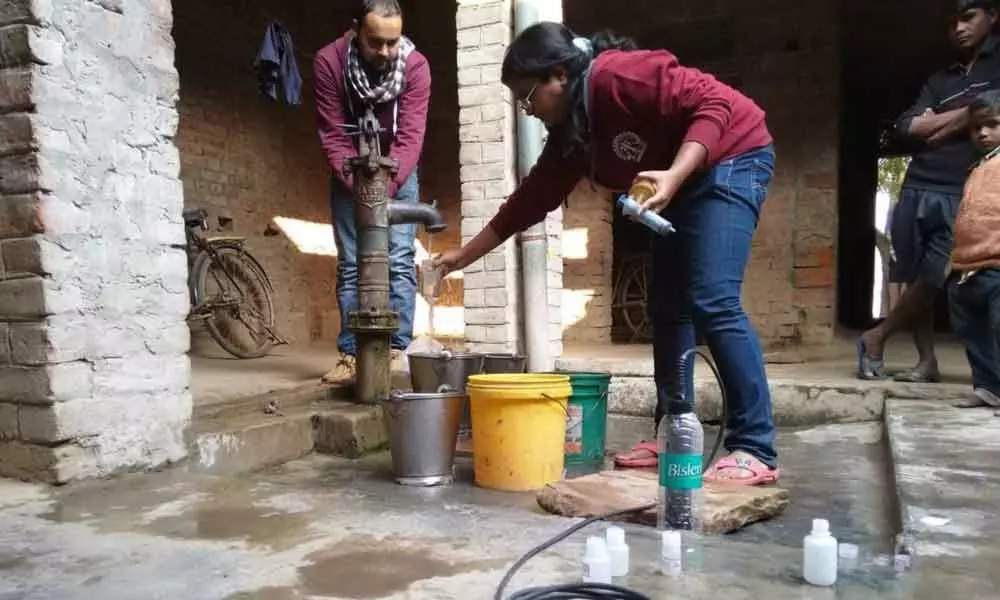IIT-K finds connection between economic growth, reduction of faecal pathogens

A team of researchers from the IIT Kharagpur have found a connection between economic growth and reduction of faecal pathogens in groundwater.
Kolkata (PTI): A team of researchers from the IIT Kharagpur have found a connection between economic growth and reduction of faecal pathogens in groundwater. The presence of faecal pathogens in groundwaters causes water-borne diseases. Prof Abhijit Mukherjee, faculty at the School of Environmental Science and Engineering and Department of Geology and Geophysics at IIT Kharagpur, led the research project.
The study reported faecal coliform concentration in potable groundwater in rural regions across India, it also made first-time observations on significant reduction of faecal pathogen concentration in the spatially variable groundwater from 2002 to 2017. Over the last 26 years till 2016, about 15.5 per cent of the total deaths are caused due to water-borne diseases like Diarrhoea, an IIT Kharagpur statement said on Thursday quoting the research findings.
Different statistical analyses conducted in the study showed about 3.09 per cent decrease in faecal coliform concentration and 2.69 per cent decrease in acute diarrhoeal cases per year for last three decades. Groundwater quality with respect to faecal coliform concentration and acute diarrhoeal cases generally reduced in most areas of India, and has been mostly caused by sanitation development, urbanization and related land-use changes, it said.
The researchers studied long term, high-spatial resolution measurements of faecal coliform concentration (1.7 million) and acute diarrhoeal cases. The study data covered almost the last three decades to delineate the long-term improvement trends of groundwater quality across India, as consequence of development. It has been observed that very high population density deteriorates the quality of water in certain areas. Problem of overpopulation and slums is an intricate problem which is reflected on all life aspects in countries like India, the statement said quoting the study.
The researchers opined that societal practices, poor human practices are mostly related to lower literacy rate which lead to malpractice on sanitation, eventually leading to increased faecal waste into drinking water sourced to groundwater He said that until recently, India has more than 500 million open-defecating population resulting in unsafe disposal of faecal waste to nearby drinking water sources and this posed a serious environmental crisis and public health concern. However, sanitation development to achieve Sustainable Development Goals (SDGs) has been encouraged across India by implementing Clean India (Swachh Bharat) Mission, but there effect to groundwater quality and human health are yet unquantified, the statement said.











